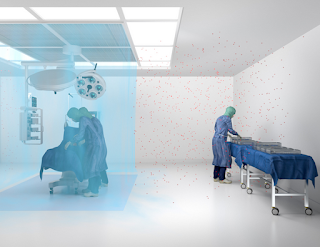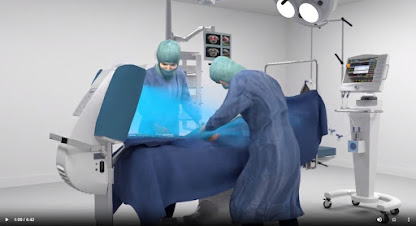How To Choose An Air Cleaner- Everything You Need to Know
The level of air pollution, both outdoors and indoors, is increasing. According to the United States Environmental Protection Agency (EPA), indoor air is five times more polluted than outdoor air. In addition, the lack of circulation of indoor air allows many airborne pollutants to thrive.
A good air cleaner can refresh stale air and reduce health risks caused by indoor pollutants, which can cause respiratory infections, neurological problems, or aggravate asthma symptoms. Our indoor air is clean and healthy when we use quality air cleaners.
Benefits Of Air Cleaners
A HEPA filter can remove 99.7% of the particulate matter (PM) circulating in your home environment. As a result of removing these pollutants, you will be able to sleep better and have a longer life expectancy.
Removes Harmful Chemicals From Indoor Environments-
These chemical contaminants can be removed by activated carbon air cleaners, preventing several health problems. Carbon filtering uses highly porous carbon to trap chemicals, recirculating fresh air back into the room.
Removes Unpleasant Odors-
Gasoline, benzene, and formaldehyde are off-gas at room temperature. VOCs can be found in paints, aerosol sprays, upholstered furniture, or air fresheners. VOC odors can cause nausea and breathlessness and affect cognitive functions.
Reduces The Risk Of Airborne Diseases-
Air cleaners with HEPA filters capture these bacteria and viruses. As a result, you and your family are protected from airborne diseases when you eliminate their causes. People with weakened immune systems, older people, or children need air cleaners.
How To Choose An Air Cleaner
When purchased, air cleaners should have certain characteristics such as HEPA filtration and ACH ratings. In addition, consider the following factors when choosing air cleaners to maximize their benefits and avoid certain negative effects:
Compatibility Of Sizes-
Rooms of different sizes require different air cleaners. Consult customer service representatives of various brands for compatible room sizes. A room-sized air cleaner is the most effective. Consider a model effective in a slightly larger room if you want to save on energy bills. Thus, even in lower settings, the air cleaners remain effective.
The Level Of Noise-
The noise level of most air cleaners with HEPA filters ranges from 35 to 70 decibels. Your operational settings determine the noise level. Avoid sleep disruptions by choosing effective air cleaners even at lower noise levels.
Filters With HEPA Technology-
Avoid cleaners with "HEPA-like" or "HEPA-type" filters. The most effective filters are true HEPA filters because they can capture minute pathogens. Air cleaners with HEPA and activated carbon filters can also eliminate odors and gases.
Conclusion
Lack of Ultra-Clean Ventilation Systems in homes has led to the demand for air cleaners. Their filters reduce indoor air pollution, but they have a threshold. Depending on the filter, you can use it for two to three months, or you can use it for a longer time. Be sure to keep an eye on the Cheap mobile air cleaners operating room indicator so you can change your filters at the right time and keep your indoor environment clean.
FAQs
Can air cleaners help you sleep better?
Yes, air cleaners help you sleep better by removing allergens from your indoor environment. Some people experience sleep-disrupting symptoms as a result of allergens. Some allergic reactions affect sleep quality by causing frequent coughing, sneezing, or difficulty breathing.
What is the average cleaning time of an air cleaner?
The average air cleaner takes 30 minutes to 2 hours to clean a room. A room's size and ACH rating determine the duration. Normeditec | Normeditec Blog Post | Normeditec Diigo | Normeditec Behance




Comments
Post a Comment